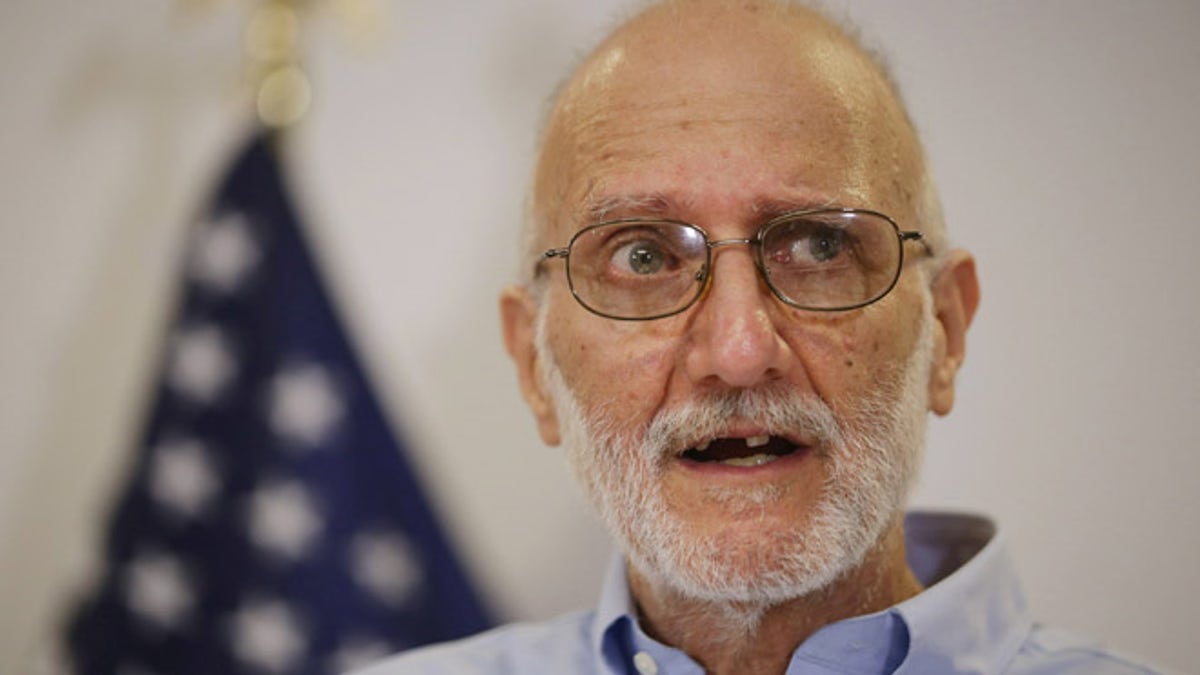
WASHINGTON, DC - DECEMBER 17: Alan Gross makes a statement to the news media at the law offices of Gilbert LLC after arriving back in the United States December 17, 2014 in Washington, DC. A United States Agency for International Develpment contractor, Gross was imprisoned in Cuba for five years on espionage charges after he delivered satellite telephone equipment to Jews living on the island. Gross' release is signalling a new era in U.S.-Cuba relations as President Barack Obama announced a political thawing between the two countries, the first in more than 50 years. (Photo by Chip Somodevilla/Getty Images) (2014 Getty Images)
WASHINGTON (AP) – The American aid worker who spent five years in prison in Cuba said he had no trouble bringing sophisticated communications gear into the country and made little attempt to disguise his work to set up Internet connections.
In his most extensive comments since he was released in a prisoner swap last December, Alan Gross also said during a prerecorded interview for broadcast Sunday on CBS' "60 Minutes" that he knew his work was placing him in danger, calling it a "cockamamie program" that arose from a failed diplomatic strategy.
Gross, 66, a communications specialist who has worked in more than 50 countries, made five trips to Cuba as a contractor for the U.S. Agency for International Development. He was arrested in late 2009 on accusations of spying, and was later convicted and sentenced to 15 years in prison. He was freed as part of a historic announcement that the U.S. would re-establish diplomatic relations with Cuba. His detention had been a sticking point in improving relations between the two countries.
Gross maintains that he went to Cuba to set up Internet access for the communist island's small Jewish community. A 2012 investigation by The Associated Press found he was using sensitive technology typically available only to governments, and the Internet connections Gross was establishing were intended to bypass local restrictions and be hard for the government to trace.
Gross said on "60 Minutes" that the only precaution he took with the equipment was to tape over a model number on a satellite modem.
"They had every opportunity to stop me from bringing that equipment in, they knew what that equipment was and if they didn't, you know, shame on them," Gross said.
He said he spotted a man who appeared to be following him and checking for radio transmissions during his third trip. Still, he returned two more times, assuming that since he was allowed to come and go, he wasn't viewed as a threat.
"Three billion people every day log onto the Internet around the world. How could that be circumventing the government?" Gross said on the broadcast. "Now, it might sound a little bit naive. So I'm naive."
While he was in prison, Gross lost more than 100 pounds, and five of his teeth fell out due to lack of nutrition. He went on hunger strikes and spoke at the time of wanting to end his life, he recalled. And he said he had become disillusioned with the U.S. government as he considered the possibility of dying in prison.
"It was ridiculous. I wasn't a spy. I wasn't a smuggler. I wasn't a criminal," he said. "... U.S. government, you want to send people to countries where we have no diplomatic relations and run cockamamie programs? Go ahead, but leave me out of it."
